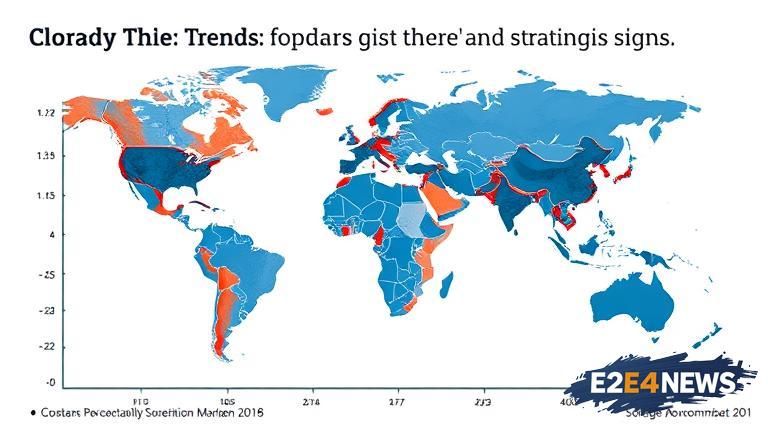The storage market has become a highly competitive and dynamic space, with suppliers constantly evolving their strategies to stay ahead of the curve. According to recent reports, the global storage market is expected to continue growing, driven by increasing demand for data storage and management solutions. The market is dominated by a few major players, including Dell, Hewlett Packard Enterprise, and NetApp, which have maintained their market share through strategic acquisitions and innovative product offerings. However, newer players such as Pure Storage and Nutanix are gaining traction, driven by their focus on emerging technologies like flash storage and hyperconvergence. The rise of cloud storage has also led to increased competition, with major cloud providers like Amazon Web Services, Microsoft Azure, and Google Cloud Platform offering a range of storage services. Suppliers are responding to these trends by developing more flexible and scalable storage solutions, as well as investing in artificial intelligence and machine learning to improve storage management and analytics. The use of flash storage is becoming increasingly prevalent, driven by its high performance and low latency. Additionally, the growth of edge computing is driving demand for storage solutions that can support real-time data processing and analysis. Suppliers are also focusing on developing more sustainable and energy-efficient storage solutions, in response to growing concerns about the environmental impact of data centers. Furthermore, the increasing importance of data security and compliance is driving demand for storage solutions with advanced security features, such as encryption and access controls. The market is also witnessing a shift towards more ‘as-a-service’ models, with suppliers offering storage solutions on a subscription basis. This trend is driven by the need for greater flexibility and scalability, as well as the desire to reduce capital expenditures. In terms of regional trends, the Asia-Pacific region is expected to be a major driver of growth, driven by increasing demand for data storage and management solutions from countries like China and India. The European market is also expected to witness significant growth, driven by the adoption of emerging technologies like artificial intelligence and the Internet of Things. In contrast, the North American market is expected to experience more modest growth, driven by the maturity of the market and the presence of established players. Despite these trends, suppliers are facing significant challenges, including intense competition, rapid technological change, and evolving customer needs. To stay ahead, suppliers must invest in research and development, as well as develop strategic partnerships and collaborations. They must also focus on developing more customer-centric solutions, as well as providing exceptional customer support and services. In conclusion, the global storage market is a complex and dynamic space, driven by emerging technologies and changing customer needs. Suppliers must be agile and responsive to these trends, investing in innovation and customer-centricity to stay ahead of the competition. The market is expected to continue growing, driven by increasing demand for data storage and management solutions, and suppliers that can adapt to these trends will be well-positioned for success. The future of the storage market will be shaped by emerging technologies like artificial intelligence, machine learning, and the Internet of Things, and suppliers must be prepared to invest in these areas to stay ahead. Overall, the storage market is a critical component of the global IT landscape, and suppliers that can navigate its complexities will be rewarded with significant opportunities for growth and success.
